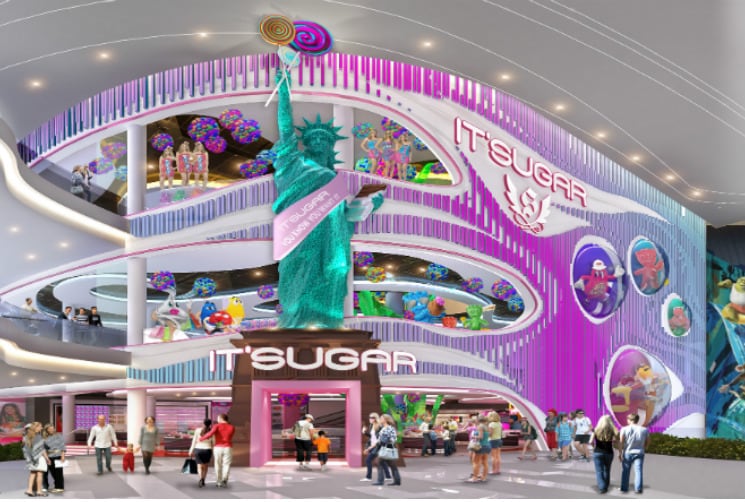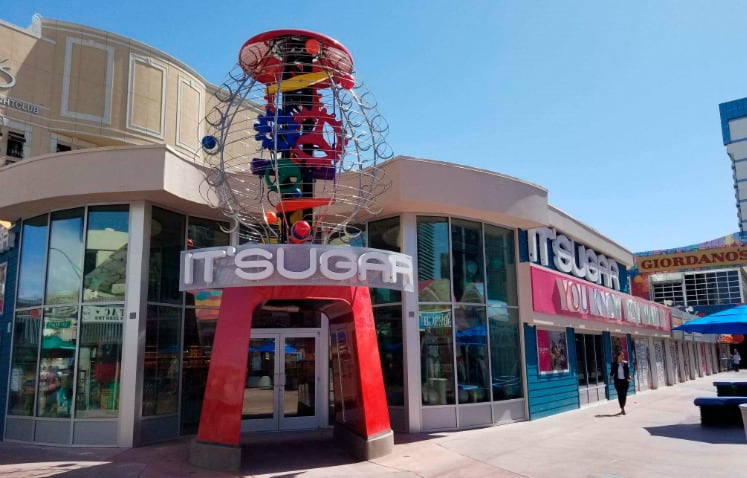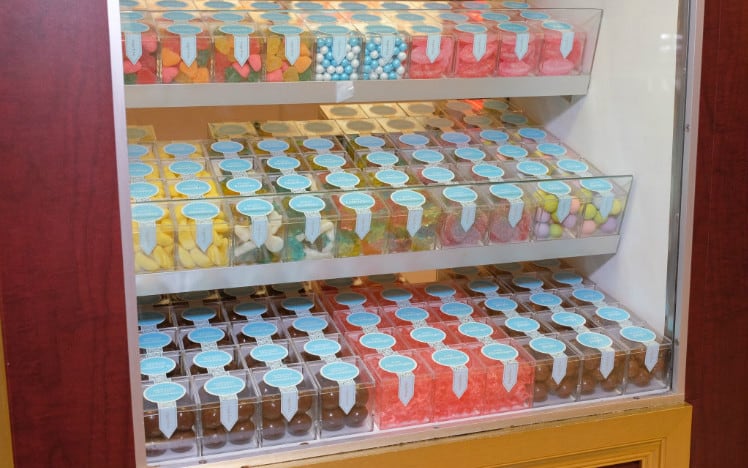Lolli and Pops closed its 2018 fiscal year in April with $61m in revenue, but it was operating at a loss of $8.5m in EBITDA – due mainly, it claimed, to ‘significant general overhead expenses.’
The Delaware court filing details the series of rent lapses and fluctuating sales that led to the bankruptcy, including the closure of seven stores in Texas and one in Boise, Idaho. According to the documents, Lolli and Pops owes $7m to First Republic Bank in San Francisco, home to the retailer’s headquarters and real estate firm Brookfield Properties, its private equity partner.
In partnering with the candy store in 2017, Brookfield – which claims to specialize in brand expansion in malls with ‘high foot traffic, loyal shoppers, and engaged community members – opened 40 Lolli and Pops locations. The firm even featured the ‘expansion story’ on its website in May.
A bittersweet story
Lolli and Pops launched in 2012 as an experiential candy store offering an assortment of international and nostalgic candies, gummies, truffles, macaroons and cotton candy, according to the court filing. It also carried its own private label line.
As of August 2019, the company operated 69 Lolli and Pops stores in more than 30 states. It also managed 10 Candyopolis stores – all of which closed their doors just before the bankruptcy filing.
Online sales ceased in February, and the company stopped paying rent to certain landlords in April, hoping that the extra cash would cover vendor and staff payments. That plan failed, according to court documents.
Lolli and Pops, which employs nearly 800 people including 80 full-time, salaried employees – pinned some blame on vanishing visitors at shopping malls and ‘seasonal fluctuations.’ It garners the highest volume of sales around the holidays in November and December, as well as Valentine’s Day and Mother’s Day in May.
Candy sales indeed peak around the four major candy holidays, with Halloween and Easter leading the pack with about $3bn each in sales.
According to court documents, the business began to deteriorate in 2018, after an expansion plan required monthly, interest-laden payments to landlords ‘for certain preopening expenses.’
“While the package-deal leases allowed [Lolli and Pops] to open additional stores, the amount owing the landlords negatively affected the profitability of the newly opened stores,” said Jeff Nerland, chief restructuring officer for the case.
Nerland approved temporary financing to keep the retailer afloat as it seeks a buyer for bankruptcy protection.




